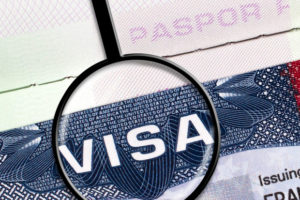
Obtaining what’s known as an H-1B visa has never been a sure thing, but some immigration attorneys, as well as those who hire such workers, say they’ve seen unprecedented disruptions in the approval process since Trump took office in 2017.
“You see all these arguments that we want the best and the brightest coming here,” said John Goslow, an immigration attorney in Ann Arbor, Michigan. “Yet we’re seeing a full-frontal assault on just all aspects of immigration.”
Link Wilson, an architect who co-founded a firm in Bloomington, Minnesota, said finding enough qualified workers within the U.S. has been a problem for years. “We’re just at the point where there’s no one else to hire,” said Wilson, who hired an architect under an H-1B visa last year after enduring a long wait.
Three months after taking office, Trump issued his “Buy American and Hire American” executive order, directing Cabinet officials to suggest reforms to ensure that H-1B visas are awarded to the “most-skilled or highest-paid” applicants to help promote the hiring of Americans for jobs that might otherwise go to immigrants.
Subsequent memos have allowed for greater discretion in denying applications without first requesting additional information from an applicant. One order restricted companies’ ability to use H-1B workers off-site at a customer’s place of business, while another temporarily rescinded the option of paying for faster application processing.
Attorneys who handle these applications say one of the biggest shifts is an increase in “requests for evidence,” or RFEs, which can delay a visa for months or longer since applicants and employers are forced to submit additional documentation. “They’re just blocking the avenues so that employers will get frustrated and they won’t employ foreign nationals,” said Dakshini Sen, an immigration lawyer in Houston whose caseload is mostly H-1B applications.
Caught in the crosshairs of all this are workers like Leo Wang, who was working at Seagate Technology under an immigration provision known as Optional Practical Training, which gives those on student visas permission to work. But that expired last year, and because his H-1B application was in flux, he was forced to take a leave from Seagate and withdraw from the master’s program he was pursuing at Berkeley.
He says he and his company dutifully responded to an RFE, compiling examples of his work at Seagate. But on Jan. 11, Wang got a final answer: He was denied an H-1B. “All I wanted was to be able to see my American dream,” he said.

Recent Comments